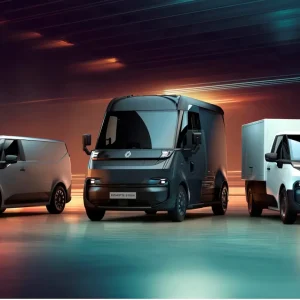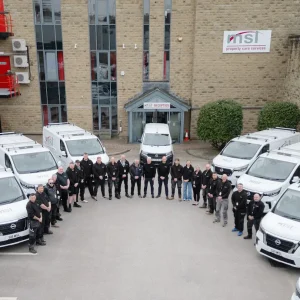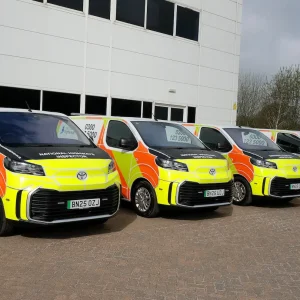The UK Government has missed a target of having six or more rapid or ultra-rapid EV chargers at each motorway service area in England by the end of 2023, according to the RAC.
The motoring organisation said only 39% of service areas it had reviewed via Zapmap now had the target number of chargers rated over 50kW.
It said this was up from 23% at the end of April 2023, and that 55% of service areas now had an ultra-rapid facility.
The RAC said 18 service areas had no charging facilities over 50kW, and four had no chargers at all: Leicester Forest on both sides of the M1, Tebay South on the M6, and Barton Park on the A1(M). On the other hand, there are now 14 service areas with more than 12 ultra-rapid chargers – the service area at Exeter on the M5 has the most high-powered chargers of all, with 24.
On average, each service area in England now has 4.9 rapid or ultra-rapid chargers, up from 3.4 at the end of April 2023.
The government’s target was set out in its publication of ‘Taking charge: the electric vehicle infrastructure strategy’ in March 2022. This set out plans to accelerate the roll-out of high-powered chargers on the strategic road network through the £950m Rapid Charging Fund – however, the RAC has noted that it wasn’t until early December 2023 that the government announced it would be providing £70m in grants for a pilot scheme involving upgrades at 10 motorway service stations.
RAC spokesperson Simon Williams said: “It’s clear from our research that the government has fallen well short of its target of having six high-powered chargers at every motorway service area in England.
“While that’s the case, some very good progress has been made since the end of April when we last carried out our survey, with four-in-10 services now having met or exceeded the target number of chargers, compared to just under a quarter eight months ago.
“There is undoubtedly an eagerness among charge point companies and motorway service operators to install these types of units but unfortunately, it’s often the high-power cabling to the grid that’s the major barrier which is out of their hands. More clearly needs to be done to make this process simpler than it is currently. Hopefully once the government’s Rapid Charging Fund kicks fully into action some of these hurdles will be overcome.
“We continue to believe that the wide availability of ultra-rapid charging is crucial in giving both current and future EV drivers confidence to know they can easily make journeys beyond the range of their vehicles in a time-efficient way.”
Responding to the RAC’s research, a Department for Transport spokesperson said: “The number of public chargepoints is surging across the country and around 96% of motorway services now offer charging facilities for drivers.
“As well as our £70m pilot to help roll out ultra-rapid chargepoints on motorways, we are driving forward the biggest reforms to our electricity grid since the 1950s – halving the time it takes to build networks and speeding up connections.”





